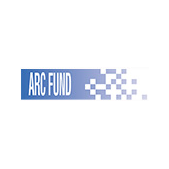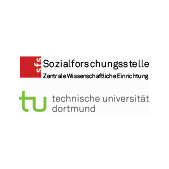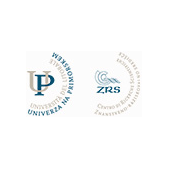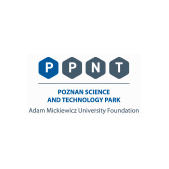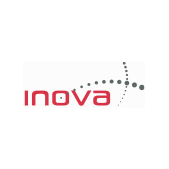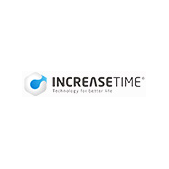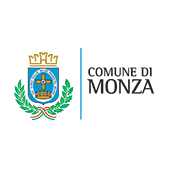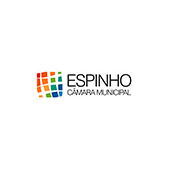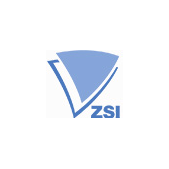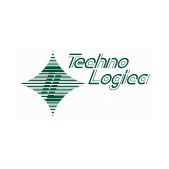Policy conference, 16-17 November, 2016
Venue: Committee of the Regions, Rue Belliard 99-101 B - 1040 Brussels
|
8:30 - 9:30 |
Registration, coffee and refreshments |
|
|
9:30 – 9:50 |
Welcome by the CoR Welcome by the European Commission |
|
|
9:50 – 10:00 |
Introduction |
|
|
10:00 - 10:30 |
Keynote: Societal Challenges of Climate Change Lučka Kajfež Bogataj, professor of University of Ljubljana, chair of WG II of the IPCC
|
|
|
10:30 - 11:00 |
Keynote: Changing European Research Landscape Martin Hynes, President, European Science Foundation
|
|
|
11:00 - 11:20 |
Q&A Chair: Edward Andersson |
|
|
11:20 - 11:50 |
Coffee break |
|
Block 1: PUBLIC ENGAGEMENT AND SUSTAINABLE INNOVATION
|
||
|
11:50 - 13:20 |
Session 1: Innovative public engagement Chair: Petteri Repo
|
Session 2: Assessing and Managing Sustainable Innovation: The CASI Framework Chair: Victor van Rij and Rafael Popper
|
|
13:20 - 14:30 |
Buffet lunch |
|
Block 2: SOCIETAL IMPACTS OF PUBLIC ENGAGEMENT
|
||
|
14:30 - 16:00 |
Session 3: Societal interaction and societal impact Chair: Markku Mattila
|
Session 4: Social innovation for sustainability Chairs: Juergen Schulze, Ilse Marschalek and Maria Schrammel
|
|
16:00 - 16:30 |
Coffee break |
|
|
16:30 - 17:15 |
Panel discussion with innovators of PE2020 and CASI projects – Added Value of Public Engagement and New Areas and Opportunities
Chair: Edward Andersson
|
|
|
17:15 - 17:30 |
Wrap-up of Day 1 Edward Andersson |
|
|
19.00 |
Networking Reception (registration required) Hotel Leopold, Rue du Luxembourg 35, 1050 Brussels |
|
Policy conference, 16-17 November, 2016
Venue: Committee of the Regions, Rue Belliard 99-101 B - 1040 Brussels
|
9:00-9:30 |
Coffee and refreshments |
||
|
9:30-10:00 |
Keynote: New capacities for dynamic governance of R&I
|
||
|
10:00 - 10:15 |
Plenary discussion
|
||
Block 3: PUBLIC ENGAGEMENT - THE FUTURE AND THE PRESENT
|
|||
|
10:15 - 11:45 |
Session 5: Evaluation and incentives of public engagement Chair: Saule Mačiukaitė-Žvinienė
|
Session 6: Local and Regional Policy Options for Sustainable innovation and development Chair: Esteban Pelayo, EURADA
|
Hands-on workshop on tools for public engagement: Chair: Kaisa Matschoss (Atrium) |
|
11:45 – 12:00 |
Coffee break |
||
Block 4: PUBLIC ENGAGEMENT - TOWARDS NEW RESEARCH AGENDAS
|
|||
|
12:00 - 13:30 |
Session 7: Prospects of PE: Round table with sister projects Chair: Fabio Feudo
|
Session 8: Involving citizens in decision-making on sustainability – research priorities and agendas Chair: Claire Nauwelaers
|
Poster exhibition: Sustainable innovation practices and public engagement stories (Atrium) |
|
13:30 - 14:30 |
Buffet lunch |
||
|
14:30 - 15:00 |
Mainstreaming PE in Horizon 2020: lessons learned and perspectives for the future Giuseppe Borsalino, Policy Officer, SWAFS Unit, DG RTD
|
||
|
15:00 - 15:15 |
Plenary discussion Chair: Edward Andersson
|
||
|
15:15 - 16:15 |
Policy options, priorities and recommendations for European Research Area
Chair: Edward Andersson
|
||
|
16:15 - 16:45 |
Conference take-away and closure Zoya Damianova, ARC Fund, Coordinator of CASI Project Mikko Rask, University of Helsinki, Coordinator of PE2020 project Giuseppe Borsalino, European Commission, Policy Officer, SwafS Unit |
||
Policy conference, 16-17 November, 2016
Venue: Committee of the Regions, Rue Belliard 99-101 B - 1040 Brussels
Session 1: Innovative public engagement
Public engagement is not a monolithic group of participatory methods and practices. Instead, it serves highly different purposes, ranging from the surveying of public preferences to foresighting of societal needs and designing and implementing research and innovation processes in a more collaborative manner. We discuss the following topics: What are the current trends of European public engagement activities? How can we characterize innovative public engagement? What are the different performative functions of public engagement? How can public engagement contribute to new capacities of research and innovation governance? How can public engagement contribute to more dynamic and responsible governance of research and innovation?
Session 2: Assessing and Managing Sustainable Innovation: The CASI Framework
The CASI project effectively integrates the perspectives of civil society, SMEs, industry, policy stakeholders, and leading academics. This collaboration investigates the scope of sustainable innovation as a societal phenomenon and enables the elaboration of an assessment framework of sustainable innovation practices, the application of which can be successfully integrated into public policy developments. This session focuses on the holistic approach of the CASI project and highlights the importance of public engagement in the assessment and management of sustainable innovation. Furthermore, we would discuss what sustainable innovation is and present practical ways to assess and manage sustainable innovation, followed by the introduction to CASI online training course on applying the CASI Framework.
Session 3: Societal interaction and societal impact
The Pilot Projects carried out under PE2020 — especially those focused on innovative and consolidated PE tools such as Townhall meetings and the Societal Interaction Plans — allowed to identify a set of emerging issues which may either favour or hinder the societal interaction on S&T. This session is intended to promote an open dialogue on these issues, revolving around some pivotal questions concerning the future of public engagement such as how to make societal interaction a common practice in science and technology, which are the most recurrent barriers to public engagement, and which are the most effective policy drivers able to increase the societal impact of science.
Session 4: The role of social innovation for sustainability
Social innovation is the intentional change of social practices, which, especially in the context of production and consumption patterns, is often necessary for the transition towards a more sustainable society. The momentum of research and practical actions shows the relevance of social innovation for sustainability. After a very short theoretical introduction and the linkage to current EU policies, two social innovators from different countries will present their innovation, how they aim to contribute to a more sustainable future, and which challenges they face. The topic includes discussing social innovation as a success factor for grand challenge climate action, resource efficiency, environment and raw materials. The audience is invited to join in the discussion using the innovative dialogue format ‘fishbowl conversation’, which allows all participants to contribute to the debate.
Session 5: Evaluation and incentives of public engagement
As public spending is used to support PE processes, and European R&I actors such as universities and big research programmes are requested to apply PE in their activities, it is important to ask what is the real value of PE and how it could be evaluated. In particular, as embedding public engagement in research organisations and institutions is becoming more important, a systemic framework for incentives and evaluation activities is needed. In this panel we address following types of questions: What defines the success of PE? What could be a systemic evaluation framework that acknowledges relevant functions of PE, such as connecting teaching, decision making, research and innovation to new societal practices and visions? What kinds of new incentives should research funders embed in future research programmes and calls?
Session 6: Local and Regional Policy Options for Sustainable innovation and development
There is good public perception on sustainability initiatives. However, there are still challenges to overcome on public engagement. Some of the initiatives provide results in so long period that the public is not interested; in other cases, there are groups directly affected that could oppose to innovations. The session will showcase 4 experiences of different levels of public engagement. On the regional level, it will be presented how to develop a wide consensus for smart specialisation in Canary Islands. Another example is the model of public engagement for sustainability and efficient use of resources developed in the municipality of Jyväskylä (Finland). The UNDP in Croatia will present a toolkit to deliver meaningful social engagement strategies in relation with wind farms that could be used for developers, communities and local authorities. Finally, the citizenergy platform (https://citizenergy.eu), which empowers common citizens to invest in sustainable energy projects across Europe.
Session 7: Prospects of PE: Reflection with sister projects
This session will leverage upon the Toolkit on PE developed under PE2020 and will focus on the prospects of PE with science and technology in Europe and especially on strategies and approaches to strengthen PE and to address the barriers which are presently limiting its diffusion. In particular, three main issues will be discussed: how to institutionally embed PE in research institutions; how to mainstream PE in EC-funded projects, especially involving those disciplinary communities which are not familiar with Swafs policies and practices; finally, how to sustain the embedment of PE into society by enhancing spaces and multiplying the opportunities for participation, thus feeding the development of a scientific citizenship.
Session 8: Policy of Disruptive public engagement
Disruption is called for when public engagement targets change. As outsiders, citizens are valuable to engage in that they are prone to challenge incumbent stakeholder arrangements, goals and expertises. Engagement may then result in addition to improved quality of decisions, also to deliberation of a wide range of arguments and plural rationalities.
This talk reviews how the CASI engagement process introduces disruption in research and innovation priority setting. In general, citizens are more concerned with societal issues than other stakeholders. They also prioritise research and innovation priorities quite differently. For research and innovation agendas, citizens provide novel priorities that challenge established stakeholder viewpoints and expertises.
Hands-on workshop on tools for public engagement
The workshop presents the following toolkits and tools designed in various EU financed projects that focus on public participation and engagement as well as on RRI:
PE2020 toolkit: The Toolkit is aimed at providing a set of guidelines on how to develop PE within one’s own institution and a set of resources on how to do it in the best way as possible. The toolkit has both the character of a handbook (providing guidelines for the action) and the character of a toolkit in the strict sense of the term (providing organised resources for the action). The toolkit is intended to be a support to researchers, research managers and other professionals engaged or interested in designing and developing a long-term strategy or an action plan aimed at embedding PE as a current practice in their own research institution (www.pe2020.eu).
CASI Framework (CASI-F): The CASI framework can assist firms, policy makers, citizens and research and education actors in the assessment and management of their sustainable-innovation-related actions. It is based on the analysis of critical aspects across numerous European sustainable innovation initiatives, particularly on their social, environmental and economic dimensions. As sustainable innovation is a multifaceted process that embed multiple sectors and research areas, developing the framework has required the analysis alongside three sources or tracks. The first track reflects the importance of seeking practical evidences in the policy action. In this respect, the CASI database - CASIPEDIA - is a platform of distributed intelligence, available to all SI actors, that collects innovation related practices, outcomes and players. The second track explores citizens' visions for sustainable futures, their expectations and concerns as well as based on them research priorities. Finally, the third track is based on evidence from SI policy developments or directions (www.casi2020.eu).
RRI Tools toolkit: The toolkit contains a huge collection of resources which can be classified into four types: 1. A “library” which compiles all sorts of relevant resources that inform on RRI and its various facets. 2. “project descriptions” of past or ongoing initiatives dealing with RRI. 3. “good practices” to inspire and adapt to other contexts and 4. a wide range of “tools” to plan, implement, evaluate, and disseminate RRI. It also contains a collection of documents that advise on “How to apply RRI” - these are examples of how to translate the theoretical dimensions of RRI into practise. Another instruments is the “self-reflection tool” that aims at stimulating a critical reflection of user’s own professional practice. The platform furthermore offers openly accessible materials for trainings which should help to design trainings and spark ideas on how to apply resources and tools accordingly (www.rri-tools.eu).
Engage2020 Action Catalogue: The Action catalogue is an online decision support tool that is intended to enable researchers, policy-makers and others wanting to conduct inclusive research, to find the method best suited for their specific project needs (www.casi2020.eu).


